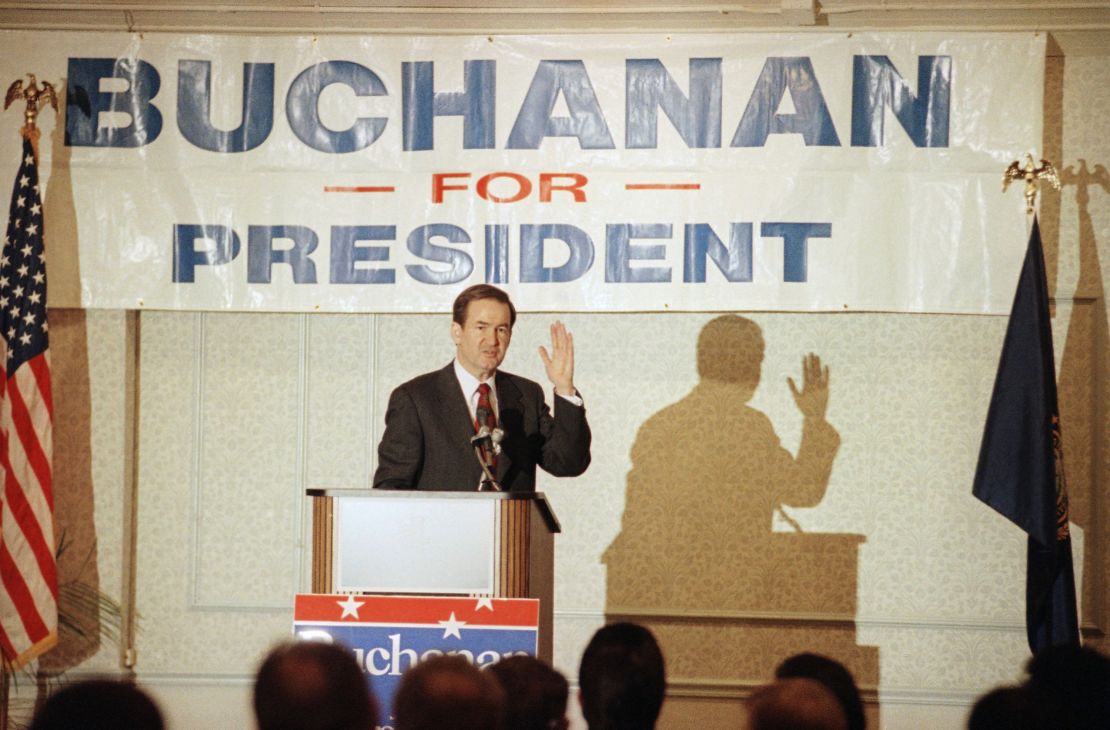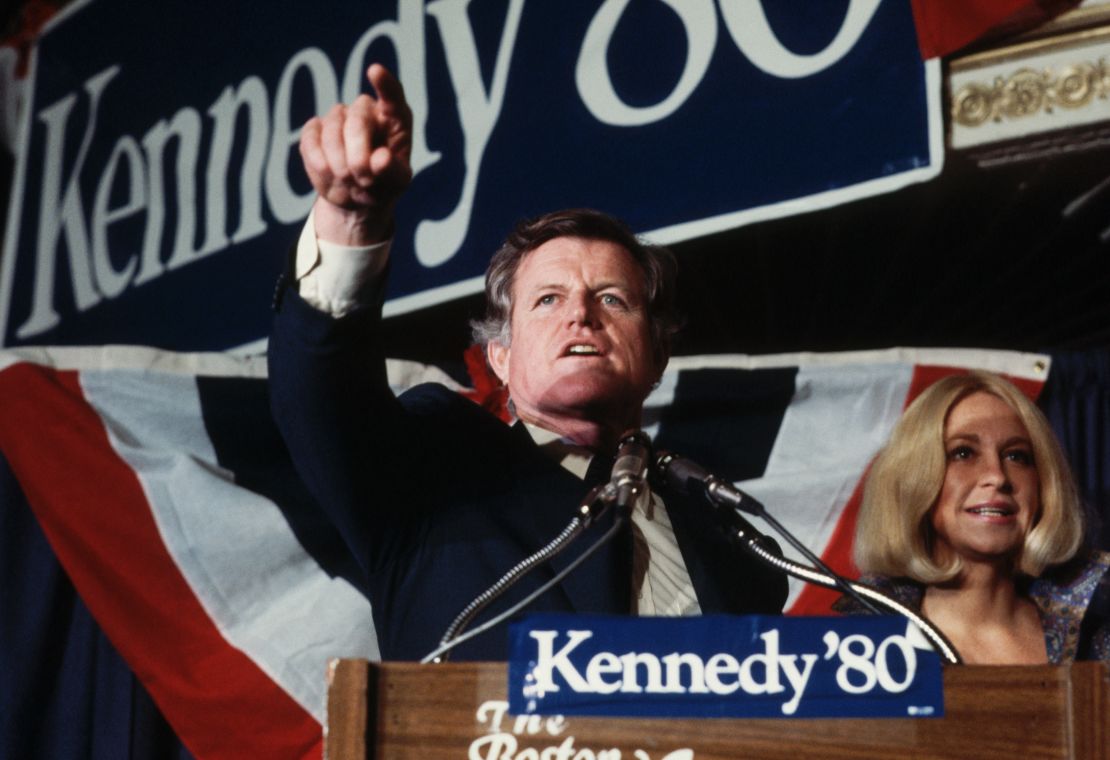Editor’s Note: David Mark is a political journalist, author and public speaker. He is the author of “Going Dirty: The Art of Negative Campaigning” and co-author of “Dog Whistles, Walk-Backs, and Washington Handshakes: Decoding the Jargon Slang and Bluster of American Political Speech.” The views expressed in this commentary are his own. Read more opinion at CNN.
Former President Donald Trump is the closest thing in modern political history to an incumbent who doesn’t hold the office.

After all, Americans chose Trump for president in 2016 and, after his 2020 defeat, he has hardly disappeared from public view. This gives Trump virtually 100% name recognition.
It also gives him top advisers with years of presidential campaign experience and political operations in key primary states that helped him sew up the Republican nomination while barely breaking a sweat. But these considerable advantages also raise questions about his general election chances given his inability to completely win over Republican primary voters.
Despite effectively clinching the Republican nomination with a near-sweep of Super Tuesday states, Trump couldn’t escape the shadow cast by former South Carolina Gov. Nikki Haley. Haley dropped out Wednesday after consistently winning 30% or so of the GOP primary vote in the states she competed in. That is a minority of the party, but it is not a small number of party malcontents heading into what is expected to be an extremely tight general election matchup with President Joe Biden.
Presidents in modern political history who have faced serious primary challenges haven’t fared well in general elections. Each survived politically to win their party’s nominations, but challengers revealed their weaknesses that the opposing party nominee then exploited to defeat them.
That could happen this year after the primary fight between Trump and Haley, who was US ambassador to the United Nations in his administration for nearly two years and used that credential and more conventional Republican views on foreign policy to win over some disaffected GOP primary-goers. Voter interviews also often cited Trump’s temperament and unpresidential behavior in explaining their preference for her.
At the ballot box, Haley steadily earned votes over her old boss among the suburban, professional class, the often independent voters who make or break presidential campaigns in swing states like Arizona, Georgia, Michigan, Nevada, New Hampshire, Pennsylvania and Wisconsin. Though at least some of these voters are likely to ultimately back Trump in the fall, the numbers suggest a small but meaningful minority of defectors from Trump could vote for President Joe Biden instead or sit out the White House race.
History underscores the bad omen this kind of vote diversion has traditionally augured for presidential incumbents, the closest proxy to Trump’s current position. The last time a president faced a serious intraparty challenge was in 1992 when Pat Buchanan sought the Republican nomination against President George H.W. Bush and ended up scarring the incumbent badly.

Buchanan, a former GOP White House aide and later a syndicated columnist, ran on a populist-nationalist right-wing platform that in many ways presaged Trump’s 2016 presidential win. While Buchanan never beat Bush in a primary race, he exposed ideological rifts within the Republican Party, including in several states that Democratic nominee Bill Clinton would capture that November. That disaffection with the incumbent on issues of trade and immigration also helped independent presidential candidate Ross Perot peel away 19% of the popular vote, though he captured no states in the Electoral College.
Before that, in 1980, Massachusetts Sen. Ted Kennedy challenged President Jimmy Carter for the Democratic nomination from the left. Despite losing a string of early contests, Kennedy rallied and won some later primaries, carrying his fight to the national party convention that August. Carter prevailed, but Kennedy’s challenge had already severely damaged his campaign, and the incumbent lost in a landslide to Republican rival Ronald Reagan, the former California governor.

Carter was vulnerable due to a confluence of foreign and domestic crises, and Kennedy hammered him over the terrible economy. Reagan used this among his effective attacks against Carter in the fall campaign, memorably asking voters rhetorically in their single debate, “Are you better off than you were four years ago?”.
The situation was similar in 1976 when Reagan challenged President Gerald Ford for the GOP nomination. Having inherited the Oval Office from President Richard Nixon after his resignation due to Watergate, Ford for months fended off attacks from Reagan from the right. Ford narrowly won the nomination at the GOP convention but lost to Carter that fall.

And back in 1968, President Lyndon Johnson abandoned his reelection bid after a disappointing showing in the New Hampshire Democratic primary. Johnson beat Sen. Eugene McCarthy of Minnesota 49% to 42%. After not even garnering a majority against a little-known senator of his party, who had attacked him relentlessly over the continued war in Vietnam, Johnson quit the race on March 31, 1968. The eventual Democratic nominee, Vice President Hubert Humphrey, lost to Nixon that November, with the Republican nominee exploiting rifts in the opposition party over Vietnam and civil unrest domestically.
Fast forward to 2024, and it appears ominous for Republicans that decent-sized chunks of GOP voters in a swath of primaries say they won’t vote for Trump in November. Exit polls in three Super Tuesday states, for instance, showed Haley voters refusing to say they would support Trump as the GOP nominee: 78% of Haley voters in North Carolina, 69% in California and 68% in Virginia.
Undoubtedly some of the Republican voters who backed Haley in the primaries and caucuses will return to the Trump fold in November, maybe even a majority. But if even a significant minority backs Biden or doesn’t vote, that amounts to tens of thousands of votes in each state.
These voters were critical last time around. Exit polls show that Biden won 6% of Republicans in 2020 and 54% of independents to Trump’s 41%. (In 2016, Democratic nominee Hillary Clinton lost independents 42% to 46%, highlighting how crucial their swing to Biden was.)
Each historical analogy is different as it relates to the budding 2024 rematch between Biden and Trump, and has its limits. But the principle is clear: When an incumbent president faces a serious primary challenge, they’re seriously weakened politically and go on to lose in November. Sometimes it’s over a specific set of issues, like McCarthy hammering Johnson over Vietnam. Other times it creates a general sense with voters that the current president is incompetent, as Kennedy did in his 1980 critique of Carter.
While Biden is the true incumbent in this race and could yet be a one-term president like Carter, blamed for a poor economy and overseas crises, the primary process suggests it is Trump who is more vulnerable. The actual primary vote against Biden was negligible, with rivals like Rep. Dean Phillips of Minnesota and spiritual guru Marianne Williamson scoring in the low single digits. Trump won most of the primaries but still had a considerable vote against him, the way incumbent presidents have who went on to lose in November.
To be sure, Biden on Tuesday also displayed some signs of electoral weakness. The fallout from Israel’s defensive war against Hamas in the Gaza Strip continues. In Michigan’s Democratic primary on Feb. 27, thousands of Arab American and young voters cast ballots for “uncommitted” to protest Biden’s support for Israel – amounting to over 13% of the electorate. That protest continued on Tuesday in Minnesota, where more than 45,000 Democratic primary voters – nearly 19% – voted “uncommitted.”
Still, the president on Wednesday consolidated his grip on the nomination when Philips, his highest-profile Democratic primary challenger, dropped out of the race. His poor showing suggests that Republicans face a bigger share of unhappy GOP and GOP-leaning voters. The recent history of presidential primary challengers doesn’t bode well for them.






